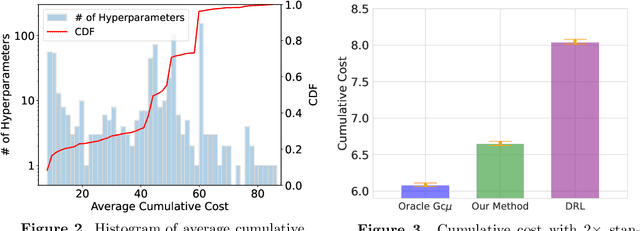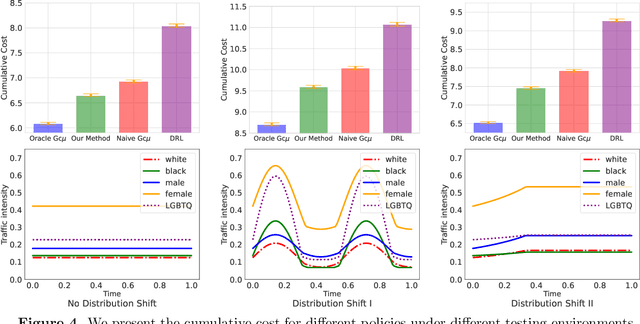Jiung Lee
Design and Scheduling of an AI-based Queueing System
Jun 11, 2024



Abstract:To leverage prediction models to make optimal scheduling decisions in service systems, we must understand how predictive errors impact congestion due to externalities on the delay of other jobs. Motivated by applications where prediction models interact with human servers (e.g., content moderation), we consider a large queueing system comprising of many single server queues where the class of a job is estimated using a prediction model. By characterizing the impact of mispredictions on congestion cost in heavy traffic, we design an index-based policy that incorporates the predicted class information in a near-optimal manner. Our theoretical results guide the design of predictive models by providing a simple model selection procedure with downstream queueing performance as a central concern, and offer novel insights on how to design queueing systems with AI-based triage. We illustrate our framework on a content moderation task based on real online comments, where we construct toxicity classifiers by finetuning large language models.
 Add to Chrome
Add to Chrome Add to Firefox
Add to Firefox Add to Edge
Add to Edge